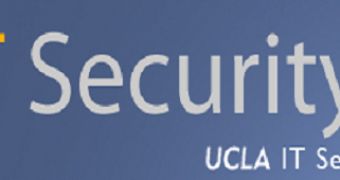UCLA's IT Security staff have neutralized spam emails that advertised a so-called social network named the “UCLA Collaborative Network.” The same type of scheme has been targeting other educational institutions such as the University of Pennsylvania, Princeton University, USC, Columbia University, and West Virginia University.
According to UCLA Today, all the spam emails originate from someone called “Brett Ashlock” and offer a social network specially designed for the targeted university.
Ross Bollens, the director of IT Security at UCLA, revealed that the site to which the link points to appears to be harmless, but the emails were blocked to avoid any unfortunate incidents.
“When you go to the site, it appears that the guy is trying to create a social network like Facebook, but he did it very poorly. But there was something about it that got people’s attention. I got queries from knowledgeable IT people about it, and people who normally know to throw these things away were asking me whether it was a scam,” Bollens explained.
Until the social network is more thoroughly analyzed, the site and the emails will be blocked. While the “Collaborative Network” doesn’t seem to pose any real threats, mainly because visitors are requested to create new accounts, instead of using login credentials from other sites, the aggressive marketing means utilized to promote it make experts doubt its legitimacy.
This is not the first time this year when the IT Security staff at UCLA is confronted with a threat from cyberspace. Back in March, members of the infamous TeaMp0isoN crew have breached ucla.edu, leaking usernames and passwords of the individuals that accessed the site’s MySQL database, along with login credentials that belong to staffers.
“That’s it for now folks. We were bit bored and had to do something last night so this came up as perfect oportunity to demonstrate how there is no security at all,” the hackers said at the time.

 14 DAY TRIAL //
14 DAY TRIAL //